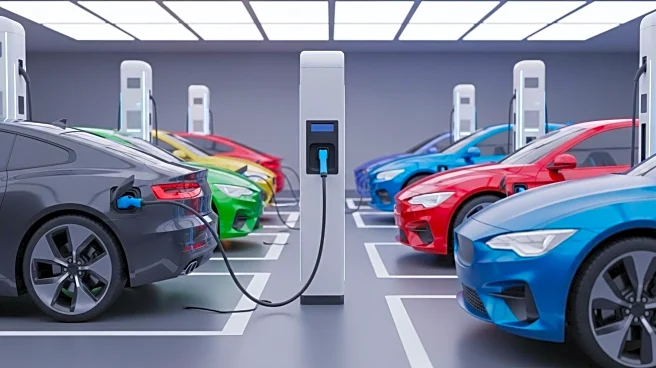What's Happening?
Tesla's market share in the U.S. electric vehicle (EV) market has dropped to 38% in August, the first time it has fallen below 40% since October 2017. This decline is attributed to increased competition from other automakers such as Hyundai, Honda, Kia, and Toyota, which have reported significant increases in their EV sales. Tesla's sales rose by only 3.1% in August, while the overall market grew by 14%. The company has not launched a new model since 2023, and its focus on non-EV products like robotaxis and AI ventures has been criticized. Tesla's board is considering a $1 trillion pay package for CEO Elon Musk if certain milestones are met.
Why It's Important?
Tesla's declining market share indicates a shift in the competitive landscape of the EV market. As more automakers enter the market with competitive offerings, Tesla's dominance is being challenged. This could impact Tesla's growth and profitability, especially if the company does not introduce new models or innovations. The focus on non-EV products may also divert resources from core automotive operations, potentially affecting Tesla's ability to compete effectively. The proposed pay package for Musk highlights the company's reliance on his leadership, but it also raises questions about corporate governance and shareholder interests.
What's Next?
Tesla may need to accelerate its product development and focus on expanding its EV lineup to maintain its market position. The company could also face increased scrutiny from investors and regulators regarding its strategic direction and executive compensation. As the EV market continues to grow, Tesla's ability to adapt and innovate will be critical to its long-term success.









